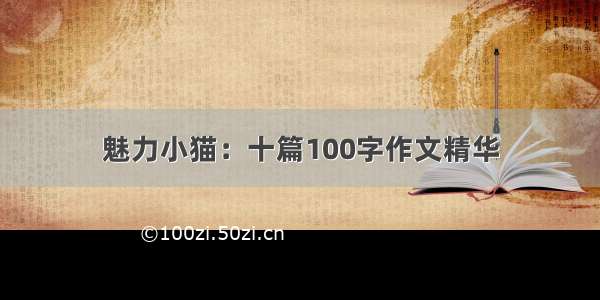我们知道在反意疑问句中,一般规则是:
陈述部分是肯定句,要用否定的问句;
陈述部分是否定句用肯定的问句:
He often goes hiking in the woods, does he?
他经常徒步去森林里旅行,是吗?
He didn go to school yesterday because he had a fever, did he?
他昨天因为发烧没去上学,是吗?
但有一些特殊的反义疑问句构成需要我们加以注意,今天我为大家来概括一下:
1. 祈使句
祈使句无论否定还是肯定,后面加will you或won you都可以。
用will you 多表示“请求”,用won you 多表示提醒对方注意。
也可能用can, can , would,例如:
Look at the blackboard, will you/ won you?
看黑板,好吗?
Take a seat, won you?
请坐下,好吗?
Help me, can you?
帮帮我,好吗?
Close the door, would you?
关下门,可以吗?
Let引导的祈使句有两种情况:
1)Lets...后的反意疑问句用shall we或shan we。例如:
Lets go to the movie, shall we/ shan we?
看电影去,好吗?
2)Let us/me...后的反意疑问句用will you或won you。例如:
Let us go to the party, will you/won you?
让我们去参加派对,行吗?
Let me have a try, will you/won you?
让我试一试,行吗?
2. 当陈述部分含有few, little, seldom,hardly, never, not, no,等否定意义的词时,其反意疑问句需用肯定结构。
You have never met her again, have you?
你再也没见过她,是不是?
He hardly ever came late, did he?
他几乎从不迟到,对吧?
注意:如果否定词是通过加前缀或后缀构成的,其后的反意疑问句依然用否定结构。
It is unclear how the disease spread between people, isn it?
目前还不清楚这种疾病是如何在人与人之间传播的,不是吗?
3. 含有否定含义的no one, nobody, nothing, none, neither等代词。
在陈述部分作主语时,其反意疑问句一般用肯定结构。
在陈述部分作动词的宾语时,其反意疑问句用肯定结构,也可以用否定结构。我们自己用时,可以认准一种用。
There is nothing we can do right now, is there?
我们现在无能为力,是吗?
She got nothing from him, did/didn’t she?
她从他那儿什么也没得到,是不是?
4. 陈述部分有have to 时,其反意疑问句要用助动词do。
但如果是had better时,反意疑问句中要用hadn 。
He has to go to hospital every week, doesn he?
他每周都得去医院,对吧?
We don have to finish it before Friday, do we?
我们不必在星期五之前完成,是吗?
We had better tell her the news at once, hadn we?
我们最好马上告诉她这个消息,不是吗?
Hed better listen to his parents, hadn he?
他最好听他父母的,对吧?
5. 当陈述部分含有情态动词must时,我们要注意must的含义。
如果must 作“一定;要;必须”讲,反意疑问句须用mustn 或needn ;
而当must作推测意义“一定是;必定”讲时,反意疑问句则需根据must后的动词原形选用相应的形式。
She must work hard in order to graduate from the school, mustn she?
她必须努力学习才能从学校毕业,对不对?
Its nine oclock. Tom must be in his office,isn he?
现在九点钟了。汤姆一定在他的办公室,是吗?
6. 陈述部分主、谓语是I am...时,
反意疑问句用aren I 或ain I,而不是am not I (可用am I not)。
Doctor, I am right, aren I?
医生我没事吧,是不是?
7. 感叹句。
感叹句后反意疑问句用isn it?/ aren’t they?
What fine weather, isn it? 多
好的天气啊,是吧?
How hard they work, aren’t they?
他们工作多努力,不是吗?
8. 当陈述部分含I think (believe, suppose...)that... 结构时,
其反意疑问句须与从句的主、谓语保持一致,注意主句的主语必须是第一人称。
I believe you can make it, can’t you?
我相信你能做到,不是吗?
I don think there is any chance that we will win, is there?
我认为我们不可能赢,是不是?
9. 陈述部分的主语是everything, nothing, anything或something 时,
反意疑问句的主语应用代词it。
Something is wrong with my car, isn it?
我的车出毛病了,是吧?
Anything will be OK, won it?
一切都会好的,不是吗?
10. 陈述部分的主语是 everybody, everyone, anybody, anyone, somebody, someone, nobody, no one, none, neither 时,
其反意疑问句的主语需用复数代词they。
Everyone will be here at eight thirty, won they?
每个人八点半都会到,不是吗?
No one is certain about the future, do they?
没有人对未来有把握,是吗?
11. 陈述部分的主语是指示代词this或that时,反意疑问句的主语用it,
主语是指示代词these或those时,用they。
This is your coat, isn it?
这是你的外套,是吗?
Those are his classmates, aren they?
那些是他的同学,对不对?
12. 陈述部分的主语是不定代词one时,
反意疑问句的主语可以用one,也可用you或he。
One should always be confident, shouldn one/you/he?
一个人应该始终自信,是吧?
13. 当陈述部分主语是从句、不定式(短语)、动词-ing形式时,
反意疑问句的主语应该用it。
What you do is more important that what you say, isn it?
你所做的比你所说的更重要,不是吗
Keeping a balanced diet is the key to health, isn’t it?
保持均衡的饮食是健康的关键,不是吗?
















